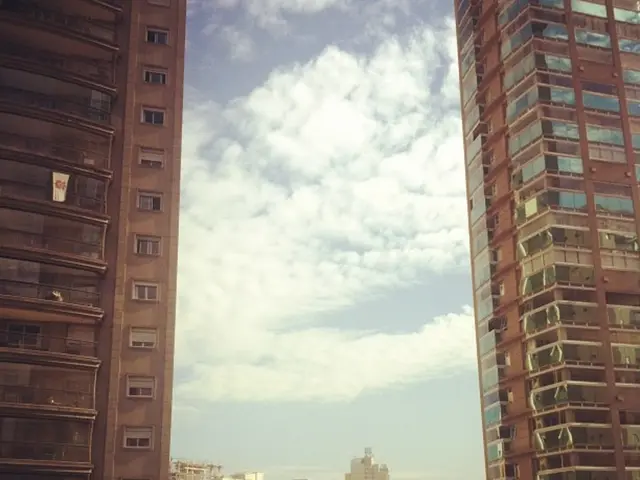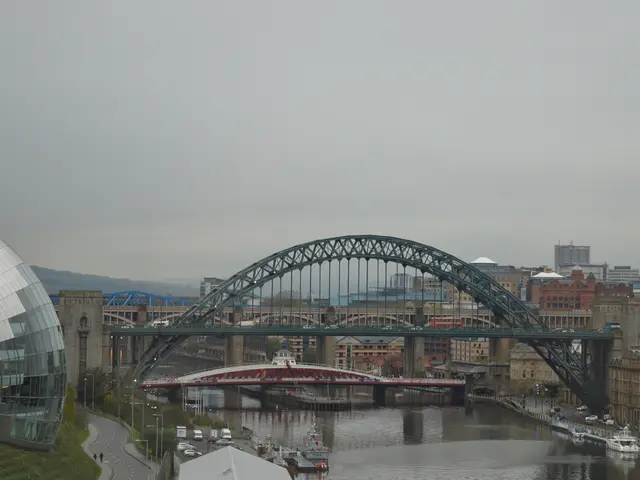Roberto Saviano is confined in a protected environment due to threats from the organized crime he extensively exposed in his writings.
By Andrea Affaticati, Milan
Roberto Saviano, author of the infamous book Gomorrah, has been living with constant police protection for 20 years, a reality that only a few can understand. In an interview with the Italian daily "Corriere della Sera", Saviano shares his thoughts about the toll this protective measure has on his personal life.
The Cost of Exposing the Mafia
At 44, Saviano is a Neapolitan native and the man who rivaled the Neapolitan mafia’s Camorra with his book Gomorrah. Released in 2006, the reportage and documentary book detailed the Camorra’s structure and activities, but it also brought a death threat from Camorra boss Francesco Bidognetti (also known as Cicciotto di Mezzanotte) and his lawyer. Saviano was informed that he had five years to live.
Saviano's family has paid the price too. Moving from Caserta, not far from Naples, to northern Italy became a necessity to escape the constant danger. Despite this upheaval, they never truly found a home.
Is the Danger Real, or Just a Show?
While some Neapolitans wish him dead for painting the city in a grim light, others, who now live in safety thanks to Saviano's courage, praise him. However, he also finds himself under the scrutiny of national-populist deputy prime minister Matteo Salvini, who would like to withdraw his police protection. Salvini questions why, despite decades of protection, Saviano remains unscathed.
A Shared Fate: Rushdie's Struggle
Saviano frequently refers to his close friend, Indian-British writer Salman Rushdie. Rushdie faced a similar ordeal with a fatwa on his life following the publication of The Satanic Verses in 1988. Despite receiving police protection, he was attacked in 2022, suffering severe injuries. The irony, according to Saviano, is that Rushdie now feels a sense of relief. The fatwa is no longer just a spectacle.
Living in Captivity
The police protection means Saviano must constantly deal with criticism for over-dramatizing the danger and seeking attention. Simultaneously, he is plagued by the question: How can I free myself from this imprisonment?
Living under police protection elicits feelings of panic, especially at night. At 5 a.m., the weight of the burden feels overwhelming. "Why am I risking my life? Why am I still alive?" Panic attacks are an inescapable reality, and medication helps him cope. Yet, he can't help but feel lonely.
The Longest Easter
The isolation is particularly poignant during holidays. While family and friends celebrated until 4 a.m., Saviano had to stay home, alone. Even romantic relationships are compromised by his limited mobility. "Especially love demands freedom, and that freedom I don't have." He confesses to a friend that he could have been friends with Philip Roth, who once said, "I'd never be jealous of a shitty life like yours."
But Saviano acknowledges that he wouldn't change his lot, even with its many challenges. They are, after all, the price he pays for telling the truth about the Neapolitan mafia.
References:- [1] Loyola University Chicago Water Tower Campus, Center for the Humanities. (2021). Roberto Saviano: Living in a Cage of Loneliness.- [2] Vincenzo, T. (2015). Living with constant danger: Roberto Saviano's survival guide. Italian Studies, 70(2).- [3] Caracciolo, A. (2017). Roberto Saviano: 'I'm constantly asking myself how to free myself from this captivity'. The Guardian.
- Roberto Saviano's community policy of constant police protection, instigated by his exposé of the Neapolitan mafia in Gomorrah, has shaped his lifestyle remarkably, causing a significant strain on his employment policy, family dynamics, and personal growth.
- As a champion of sustainable living, Saviano's brave actions have sparked positive change in the fashion-and-beauty industry, encouraging awareness about war-and-conflicts and promoting education-and-self-development.
- Despite the threats and relentless danger, Saviano's devotion to relationships, books, and mindfulness has helped him navigate through politics and general news, fostering insightful discussions about crime-and-justice and the role of policy-and-legislation in these matters.
- Saviano's personal experiences with car-accidents and the broader issue of accidents have influenced his goal-setting, urging him to prioritize prevention and safety in public discourse.
- Apart from his passion for sports and sports-betting, the near-fatal experience of Salman Rushdie highlights the tangible risks associated with speaking truth to power, serving as a stark reminder of the potential consequences of one's actions and beliefs.
- With migration becoming a pressing global concern, Saviano's ordeal sheds light on the sacrifices made by those who choose to expose and combat injustice, even at the cost of their own safety and lifestyle.
- Conversely, Saviano's harrowing journey offers various lessons in relationship dynamics, encouraging empathy, understanding, and perseverance in the face of seemingly insurmountable obstacles.
- As he navigates through home-and-garden projects, Saviano's unique perspective on life allows him to cultivate a peaceful and meaningful environment, serving as a testament to his resilience and determination.
- In collaboration with esteemed institutions, Saviano has spearheaded research on entertainment and its impact on society, emphasizing the power of creative expression in fostering positive relationships and building thriving communities.
- Rapid advancements in technology and policy-and-legislation continue to shape the landscape of car-accidents and crime-and-justice, calling for increased public awareness and vigilance in ensuring the safety and well-being of all individuals.
- Through perseverance and dedication, Saviano remains a beacon of inspiration for countless people, demonstrating that the pursuit of personal growth, even in the face of adversity, can lead to extraordinary accomplishments and enduring impact.








